Five Christians living with disabilities share how God is using them in powerful ways for mission and ministry
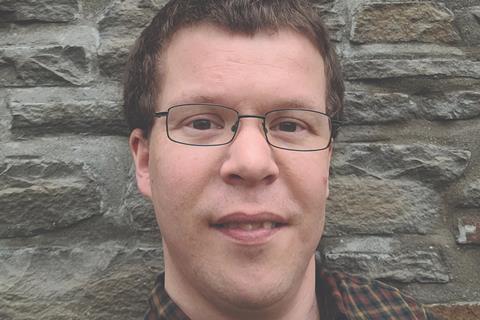
Dom Whitting - Hospital chaplain
I was born with mild cerebral palsy, a disability that was once described to me as like having a stroke, because it means I now have a weakness on my right-hand side.
I have trouble doing things that require steady hands – like carrying a tray – and it also affects my speech, which can be difficult to understand, especially if I’m tired. Additionally, I have scoliosis, a curvature in my spine.
I was brought up in a loving Christian home and went to church from a young age. I had great Sunday school teachers, many of whom I still remember. When I was confirmed as a teenager, I had the chance to commit to following Jesus. That was a significant moment in my journey of faith.
From a very young age, I felt a calling to be a priest. This was encouraged and supported by many and so, in 2010, I was ordained in the Church of England. I ministered as a curate and went on to be vicar of two churches. I also had responsibility for a Methodist church and congregation. I now minister as a hospital chaplain. It’s a job I love that I feel God had prepared for me all along.
‘I continue to be amazed at how God often places me at the right time in the right place with the right words to say’
It means I give something back to the NHS, which has been there for me, especially when I was growing up. It also means I get to journey alongside people when life is difficult. In some small way I can relate to their situations. I continue to be amazed at how God often places me at the right time in the right place with the right words to say. In such moments, I’m always thankful for how God has called me and how he continues to use me.
I believe God can use anyone to do anything and so my prayer is that all churches would be inclusive places for people with disabilities. A warm welcome is just the first step. I hope also that there will be greater understanding about all disabilities, not just physical ones – disability comes in many forms.
I have always found great hope and strength in two Bible passages. Firstly, Jeremiah 29:11: “‘For I know the plans I have for you,’ declares the Lord, ‘plans to prosper you and not to harm you, plans to give you hope and a future.’” God has a plan for everyone, including those of us with disabilities. I believe God wants to use us as much as anybody else. When things seem hard, I remind myself of this verse and of my favourite psalm – Psalm 139. It reminds me that God has created me and shaped me, he knew me before I was born and, in his eyes, I am wonderfully made.
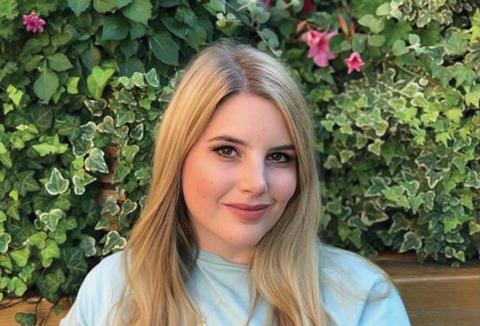
Jade Reynolds - speaker, writer and co-host of the ‘Bring to Light’ podcast
I have a spinal cord injury caused by an incredibly rare autoimmune condition called acute transverse myelitis. Within minutes, on 13 May 2003, I went from being a healthy twelve-year-old girl to being unable to walk or feel much from the waist down. I have been in a wheelchair ever since.
Over the last 20 years, I’ve regained much of my independence and tried to not to let my disability hold me back. I learned to drive at 16, married at 26 and I now have two children. However, there are still day-to-day limitations; spontaneity is a luxury I don’t have, as we need to check how accessible any new place is.
From a young age, my disability gave me a unique perspective; I didn’t get sucked into the image-conscious mindset of many of my peers. My life was never going to be ‘Instagram perfect’, which was a blessing. It took the pressure off and allowed me to focus on the things that last – my character and my faith.
Many of us think we attract friends by being ‘impressive’, but the reality is that deep friendship is usually accelerated through vulnerability. I needed help, so I had to turn to community, which, thankfully, is exactly what God made us for, and something I found in the Church. I have first-hand experience of what it’s like to be vulnerable and, to some degree, an ‘outcast’ in society, which inevitably grows my compassion for others and develops an increased sense of God’s justice for all.
‘God loves to make possible what the world considers impossible, and he loves to use powerfully those the world considers incapable’
Many Christians seem very comfortable praising God for healing, but not so keen to suffer with those who aren’t healed. When we elevate God healing Paul’s blindness, for example, over God leaving Paul’s thorn in his flesh, we overlook that God does something powerful in both of those instances. What others perceive as a problem isn’t a problem for God. He uses me despite my disability; it’s a mighty declaration of his power, which is made perfect in my weakness (see 2 Corinthians 12:9).
For the longest time, I’ve not wanted to be defined by my disability, so I’ve shied away from speaking about it, but recently God has given me a platform, through social media [one of my videos has had over 23 million views!] and through Christian festivals and conferences. He is opening doors that I feel would be disobedient to close. I want the story of God’s unending goodness to shine through my life and inspire others to walk closer with him.
Romans 5:3-5 says that “suffering produces perseverance; perseverance, character; and character, hope. And hope does not put us to shame”. Because of all I’ve been through, I’ve always been a very hopeful person. Many of us turn to God when we feel weak or incapable, and I’ve turned to him a lot to get me through things that nobody else could have helped me with.
God loves to make possible what the world considers impossible, and he loves to use powerfully those the world considers incapable. You don’t need a perfectly able body to be used by the God of the universe, you just need an open heart.
Hear more from Jade on the faith-based ‘Bring to Light’ podcast @bringtolightpod
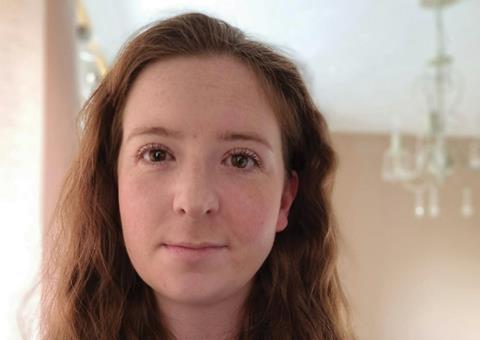
Laura Neale - director of YouBelong, a community for Christians with disabilities
I have a number of chronic illnesses that affect my ability to eat, sleep and move about ‘normally’ due to pain and fatigue. I am no longer able to work, live independently or leave the house without a lot of planning – and my electric wheelchair. Some days, I cannot even eat a meal because of excruciating pain due to complications with my oesophagus.
My health problems started eight years ago and the cause is believed to be a mix of genetic, autoimmune and post-viral factors. I find the loss of my independence the hardest thing about being disabled, along with the loss of spontaneity. It can lead to feelings of isolation and loneliness.
I have been a Christian since the age of eleven, and God’s peace has helped me through the difficult times. I’ve come to understand that healing and cure are not the same thing. God has healed me (spiritually) but not cured me (physically). Wholeness does not mean physical perfection, so although I have not been physically healed or cured, I have been healed emotionally through acceptance of my situation, which I believe is God given.
‘We are not worthless people to be pitied, we have God-given gifts to offer’
I went to university to study theology with the intention of going into youth work, but it soon became obvious that my depleting energy levels would not allow for that. So, in 2019, while trying to find people like myself, I set up an online Christian community/church called YouBelong. It aims to connect, support and empower disabled and chronically ill Christians. It also seeks to change the way disability is viewed. We are not worthless people to be pitied, left outside the gate to wait for scraps from those who walk past; we have God-given gifts to offer. But unless you make it possible for us to access buildings, communities and training colleges etc, you will never get to benefit from these gifts.
I don’t think I would have had the courage to step into this ministry if I had known what it would become when I first started it. I know of people who cried with joy when they discovered us, because it’s a place where they are welcomed, accepted and can ask the difficult questions. It has been a lifesaver for me as well, providing a community and friends I would never have met without it.
My message to other Christians with a disability is: it’s OK to be angry at God. He knows disability can be very hard and he is big enough to take your pain and upset. Don’t let other people tell you that you need more faith, or you need to pray harder, or that it’s your fault, because it’s not. God didn’t make you unwell or disabled, but he can and will use it for his glory. Maybe, like me, God is using your previous skills and experience in a way that is different from what you originally thought or hoped. Be open to what he has for you.
Join the YouBelong community at facebook.com/youbelong2019
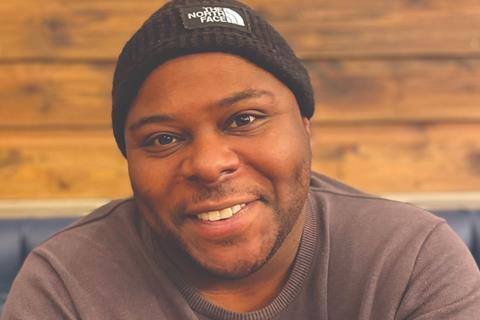
Rev Dr Augustine Tanner-Ihm - Anglican minister and lead for small groups at St James and Emmanuel, Didsbury, in the Diocese of Manchester
I suffer from dyslexia, dyspraxia and borderline personality disorder (BPD). These affect my life in several ways. At times, written communication can be extremely difficult, while BPD can make regulating my emotions a challenge. BPD is a mental health disorder that impacts the way you think and feel about yourself and others, causing problems functioning in everyday life. I grew up in poverty in Chicago, where I was in and out of homeless shelters and government-assisted housing. BPD was a direct result of childhood sexual and emotional abuse.
I became a Christian in 2004 at an Assemblies of God summer camp. I had a powerful experience with the Holy Spirit and knew that Jesus was real. But because of my challenges, particularly around communication, I have since sometimes felt inadequate as a disciple of Jesus Christ. In the Anglican Church, theology and reading scripture – two things I struggle with – are very important, but I have come to see that these are not the only markers of a disciple. I have found other ways to connect with God, who continues to show me love and support.
‘Having disabilities has made me more understanding and inclusive in my ministry practice’
My disabilities can make church life difficult, because people don’t always understand that written communication is hard for me. I remember being a teenager and hating the fact that we were encouraged to read aloud from the Bible in church. When it came to my turn, all I could think about was how to say my verse correctly, without stumbling over words. It made me hate Bible study.
People with learning difficulties can be written off as being not very bright, which is not true. I have earned a PhD in Theology and I’m currently working on my second PhD in Organisational Psychology.
Having disabilities has made me more understanding, compassionate and inclusive in my ministry practice. I think carefully about how I am communicating the good news and I try hard to make the message inclusive, both in terms of style and content. God continues to lead me towards ministry in the area of justice; I feel called to proclaim the good news to the oppressed and marginalised. As a person who has been looked down on because of my race, nationality, sexuality and disability, God has given me compassion for, and the ability to work with, those whom others might find difficult. I want to bring the gospel afresh to a new generation. This is the heartbeat of my life. Within radio, blogs, TV or even TikTok I want to communicate an old truth to a new audience.
I hope and pray that the Church would be more sensitive in its discipleship of people with disabilities, particularly those with invisible ones. I also pray that those with additional challenges would know that God has a plan for their lives in spite of the brokenness and isolation they sometimes experience.
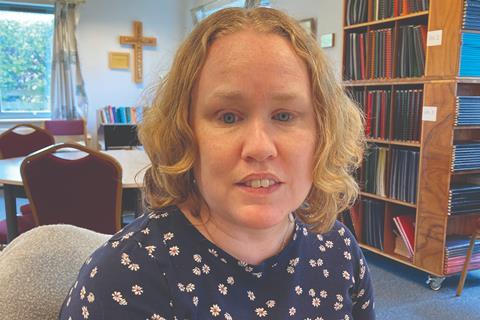
Linn Davies - development team promotions and communications officer at Torch Trust
I have been blessed with an extremely resilient spirit that has allowed me to bounce back from disappointments, bereavements and unfair treatment. I have also been blessed with the ability to tell stories through music, journalism and creative writing, and I am using that ability to do what I can to make sure disability becomes part of the diversity agenda.
Being blind has given me lots of opportunities that I wouldn’t have had as a sighted person. I was a youth delegate for Norway, my home country, in a European parliamentary hearing on disability, and being blind has made it easier to secure high-profile interviews with people such as Lord David Blunkett.
Life growing up was a mixed bag. Being blind from birth wasn’t something I viewed as a problem, but other people made things harder for me. My teenage peers had ideas of what was cool – and I was decidedly not cool. In the Church, I had other issues: faith healing was forced on me a few times, which didn’t work, and people told me the devil had made me this way. I just wanted to get on with life, like everyone else. My family treated my brother and I the same. They had ambitions for me to become something; to get an education, a job and have a family.
The disability rights movement started around the same time as those of race and sexuality, yet the latter two have garnered greater recognition and media coverage. Until disabled people are given the same attention and treatment as other marginalised groups, we have no hope of tearing down the barriers – often attitudinal ones – which stand between us and a better, more inclusive society.
‘Being blind has given me lots of opportunities that I wouldn’t have had as a sighted person’
Another pill I find hard to swallow is that the view I have of myself doesn’t match up with the view the general public has of me. I see a multi-talented, well-educated and high-achieving woman, while they see the blindness above anything else. I’ve had a lot of conversations with other blind people who feel the same: if the world saw us the way we, and those who love us do, we would have more fulfilling careers, make more money and achieve more.
I see people as unique individuals who bring their strengths to the body of the Church. I’m not against healing, but I have come to understand that it doesn’t mean getting rid of a disability or curing someone. You heal from a break-up, or a cold, or a difficult childhood, but you don’t necessarily heal from being disabled. The path to true healing is being accepted for who you are.
I’m a singer and I’ve always been called to sing. This is what I have done in church for years, both leading worship and being part of a worship band. I also use my gifts for writing and broadcasting – I produce ‘Insights’, a podcast on faith and sight loss from Torch Trust, where I work. However, I see myself as doing most of my ministry in the secular world. The majority of the songs I write aren’t Christian, neither is the personal podcast I’m starting. You could say it’s a form of evangelism.
If you’re a disabled Christian reading this, I wish you the best with your journey. The Church, with its focus on ‘healing’ (which really means curing) can easily discourage you from going to church but, as the conversations and times are changing, more people are beginning to understand that disability doesn’t mean you are somehow ‘less’.
Torch Trust produces copies of Premier Christianity in accessible formats, including Braille. Find out more at torchtrust.org
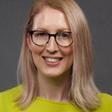












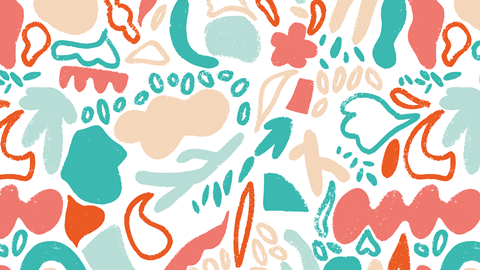

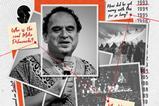
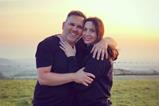
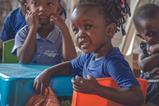





















No comments yet